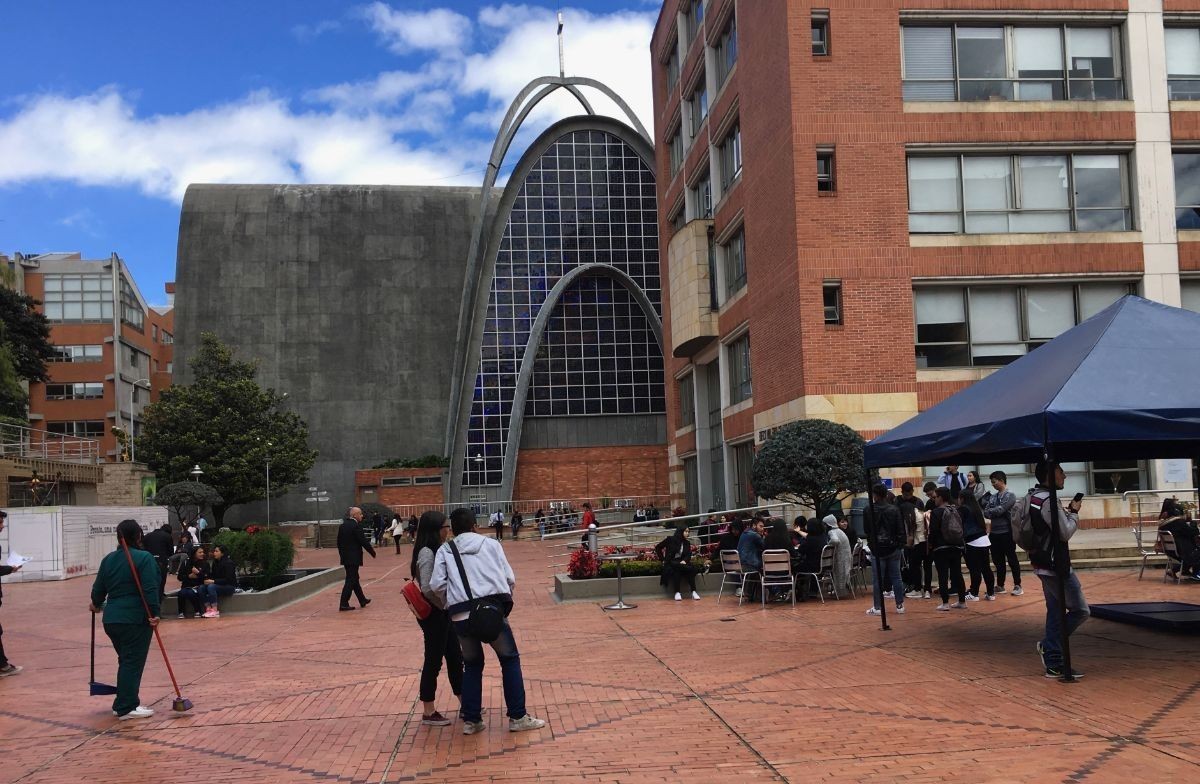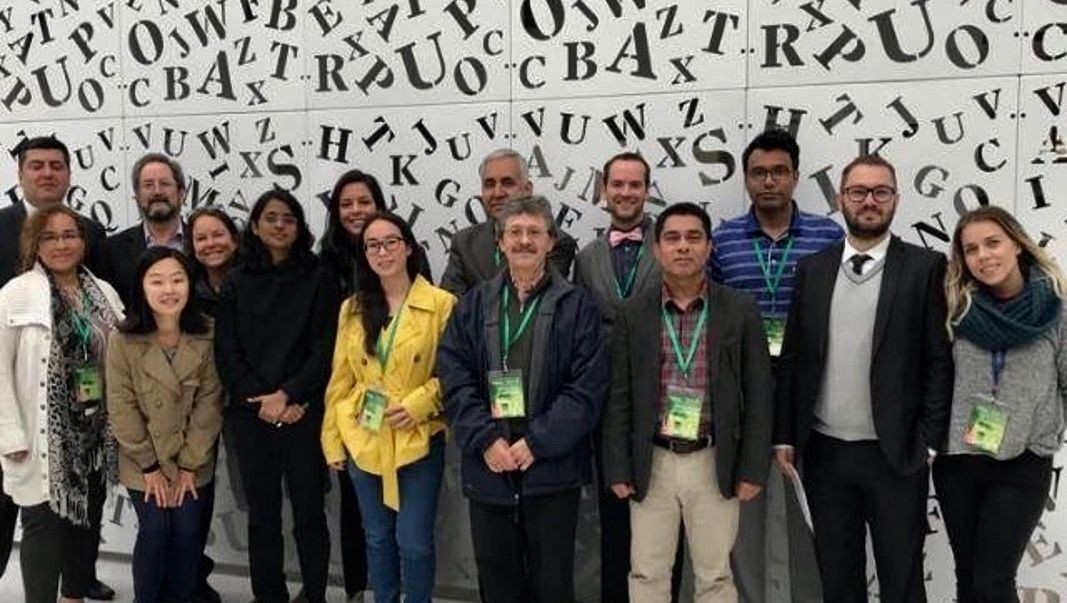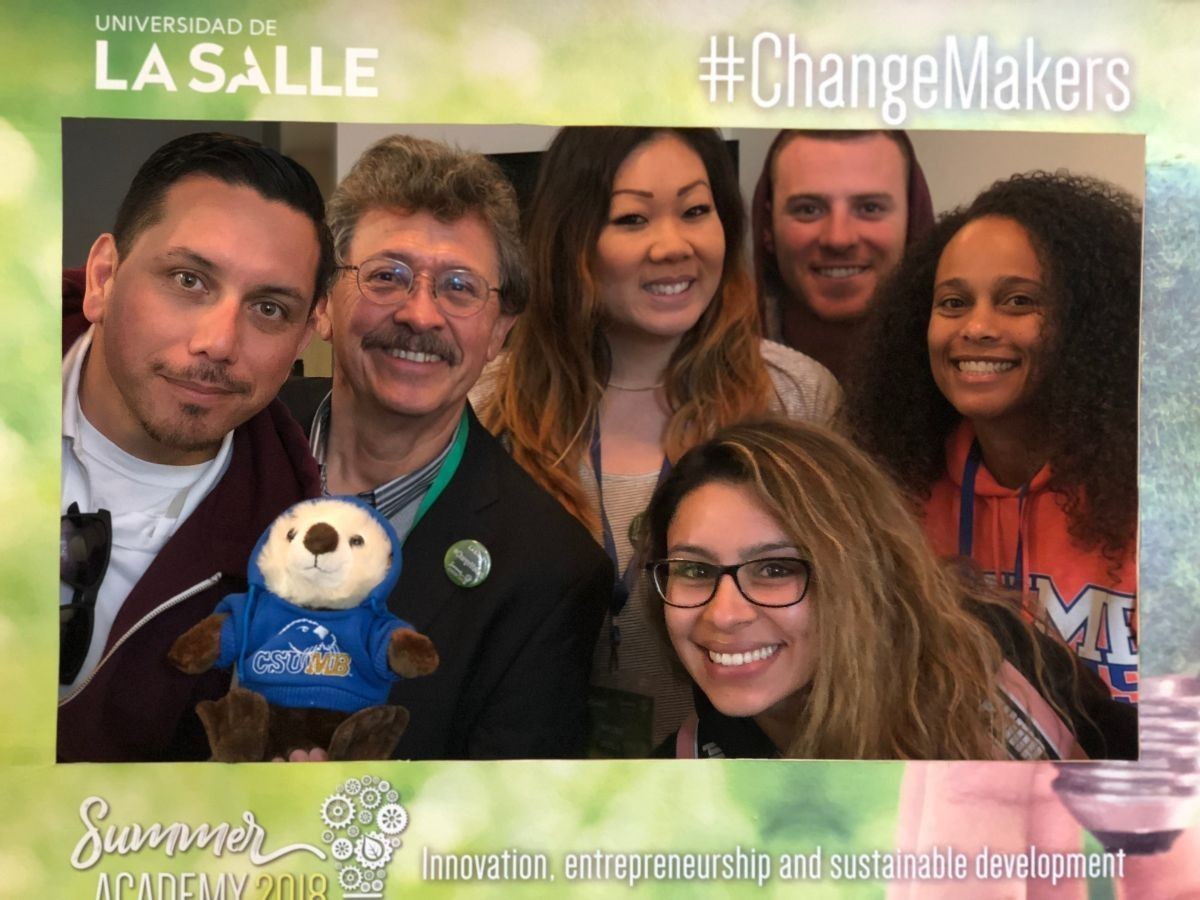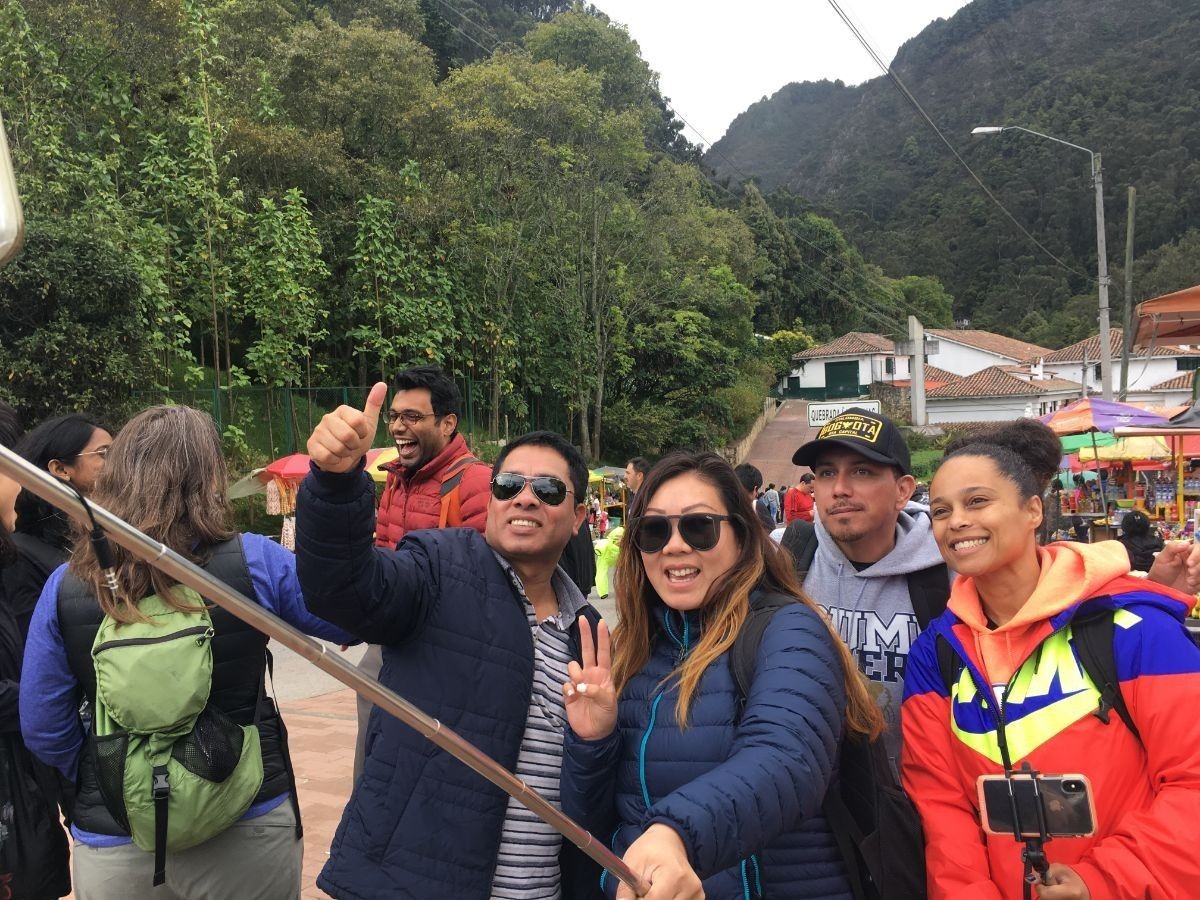Education Abroad
La Salle Summer Academy - Bogotá, Colombia
Dr. Rafael Gomez | Professor - School of World Language and Cultures
It is 10 at night, I am pickep up by a couple of colleagues at El Dorado airport in Bogotá. We get into a small car and begin our trip through the chaotic streets of the capital of Colombia. This is for me the beginning of a journey back in time. I left Bogotá as a child in the 1960s and now I was returning as a Visiting Professor. Everything I saw, heard, smelled, and experienced in those first hours was both eerily familiar and strange. I did not know at the time that this would turn out to be a very enriching and rewarding professional and personal experience.
Everything began in early spring (2018) when I got an email message from International Programs announcing an opportunity for CSUMB faculty to apply to teach at The International La Salle Summer Academy, a two-week summer program that brings together faculty and students from different parts of the world to engage in courses focusing on innovation, entrepreneurship, peace and sustainability. I was intrigued by the concept and decided to take a risk and apply. A few weeks later, I got another message, this time from Bogotá informing me that my course proposal to teach “The Intersection of Identity, Social Responsibility, and Civic Engagement” had been accepted.
I arrived in Bogotá on July 15 and at 7 a.m. the next morning I was sitting in a very modern, comfortable conference room listening to an introduction to the program. “La Universidad de la Salle has developed this Summer Academy,” said the Director of International Programs, “to bring the world to Colombia, since many of our students do not have the opportunity to study abroad. We want to give them an international educational experience without leaving the Chapinero campus and also to showcase Colombia to the world.” This became for me the overarching theme of the experience.
After his presentation, I had the opportunity to meet a group of fellow educators from around the world. We were a truly diverse interdisciplinary group of professionals committed to international education. As the weeks progressed, I had ample opportunities to meet them after work to compare notes, exchange experiences, and brainstorm about future cooperation on academic projects.


After the introductions we toured the campus. I was genuinely impressed by the facilities. At two in the afternoon, I got to meet the students in my class. I did not know what to expect. Of the nine that registered, two were international students working on their dissertations at a University in Canada, one a native of Nigeria and the other a native of Jamaica. There were five Colombians from different parts of the country, and different levels of English proficiency, and finally two Latinx women from Massachusetts. This was not the first time that I was going to be teaching about race, power, social responsibility and civic engagement but on this first day, I could not predict how engaging, rich, and meaningful the dialogue was going to be. Each one of us brought to class a unique combination of knowledge and lived experiences that made difficult discussions engrossing and original.
By the middle of the week I met five CSUMB students studying at La Salle and by the weekend during a trip to Monserrate, a pilgrim destination at a hill overlooking Bogotá, we had a chance to talk about our experiences as faculty and students. For me it was also a time to reminisce about my family’s yearly peregrination to the Basílica Santuario del Señor Caído de Monserrate and our eating of tamales and drinking of hot chocolate. For a moment I felt as if I was back home.
On August 1st, I was back at El Dorado airport ready to board a plane to Frankfort where more work awaited me. The twelve-hour flight gave me sufficient time to reflect on my first impressions of Bogotá. It was both what I had expected and at the same time a totally new experience.

